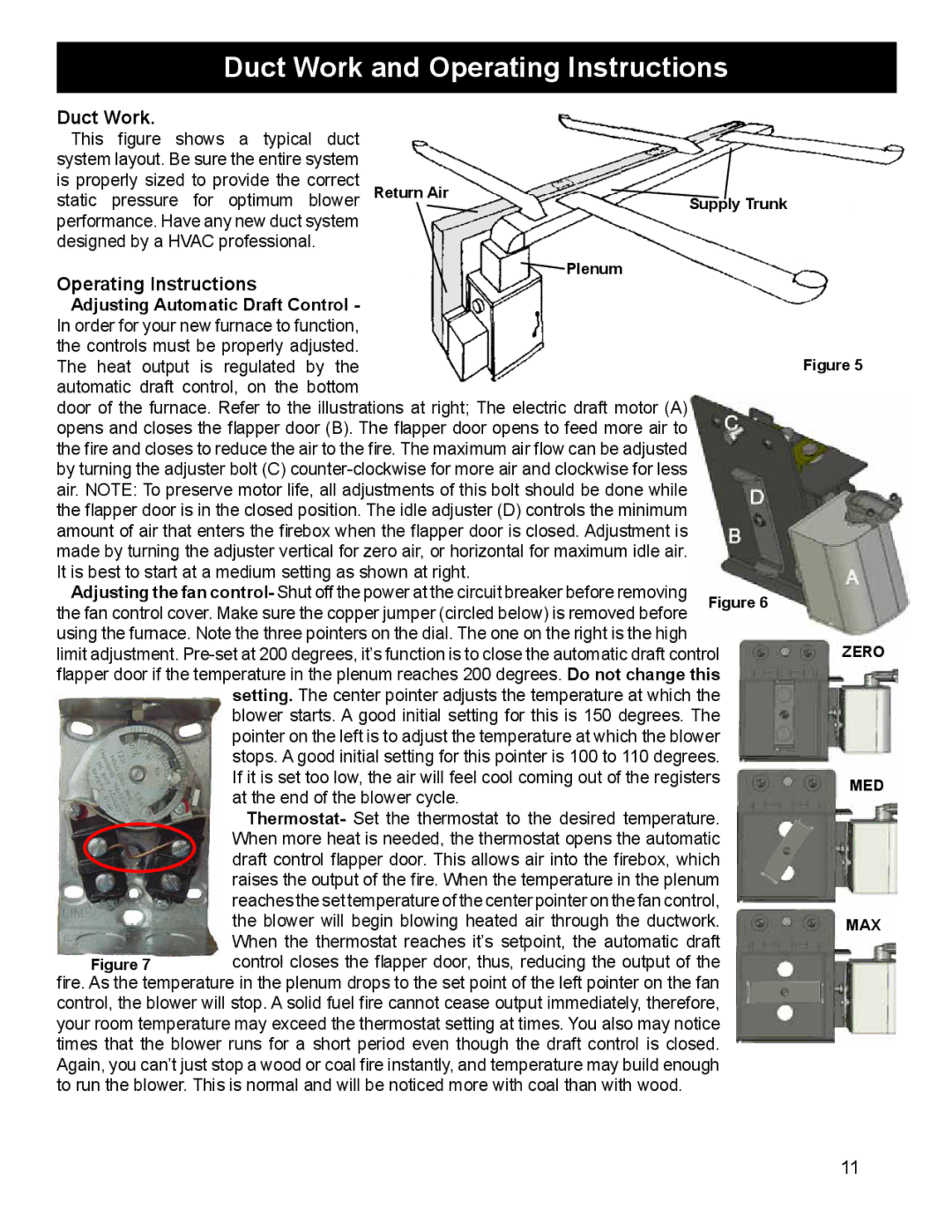SF1500A specifications
The Harman Stove Company has established itself as a leader in the heating industry, known for its innovative and efficient wood and pellet stoves. The SF series, including models SF2600A, SF1500A, SF3500A, and SF2500A, showcases the company's commitment to high-quality craftsmanship and cutting-edge technology.The SF2600A stands out with its robust heat output, designed for larger spaces. With a capacity to heat up to 3,000 square feet, it features a large firebox capable of accommodating extended burns, which means less frequent refueling. The CleanStart technology ensures that the stove ignites quickly and efficiently, minimizing smoke emissions and energy waste. Users will appreciate the integrated air wash system, which keeps the glass clean, providing an unobstructed view of the flames.
Meanwhile, the SF1500A serves as an excellent choice for smaller homes or cozy spaces, heating areas up to 1,800 square feet. Its compact design does not compromise on performance. The model also incorporates Harman's advanced combustion technology, which optimizes airflow for a cleaner burn. This efficiency not only helps in reducing heating costs but also contributes to a more environmentally-friendly operation.
The SF3500A is engineered for those who demand maximum warmth and efficiency. With a substantial heat output, it can easily heat areas exceeding 3,500 square feet. This model integrates a state-of-the-art digital control board that allows users to manage their heating needs effortlessly, providing options for programmable settings and real-time monitoring. It also boasts a high-efficiency rating, ensuring users get the most from their fuel, with longer burn times and minimal ash production.
Lastly, the SF2500A offers a balanced approach, capable of heating spaces up to 2,500 square feet. It features adjustable air controls, enabling users to customize their heating experience based on personal preference. The built-in diagnostics system helps troubleshoot potential issues, providing peace of mind for homeowners. With elegant styling and various finishing options, the SF2500A can seamlessly integrate into any home décor while delivering dependable warmth.
Each model in the Harman SF series exemplifies durability, performance, and user-friendly operation, making them ideal for anyone seeking a reliable heating solution in today's energy-conscious landscape.

